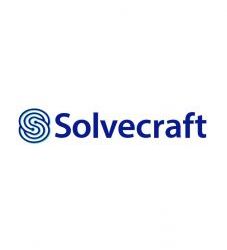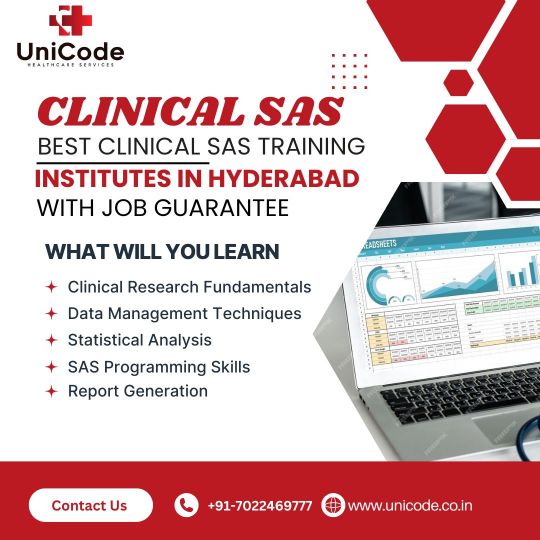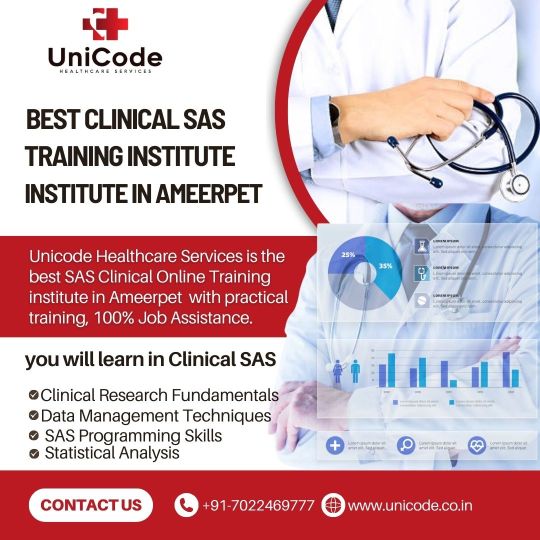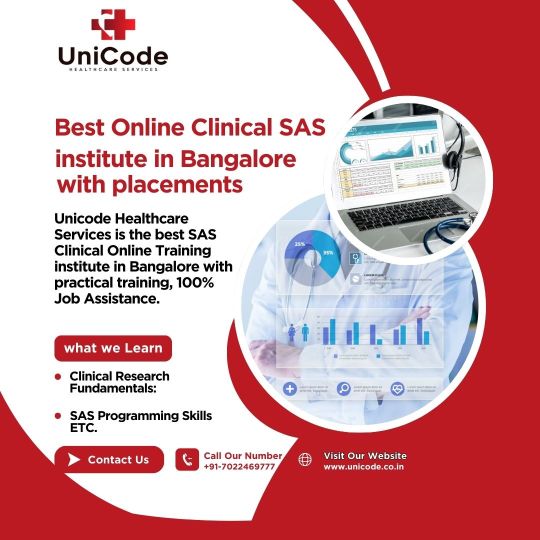#Data Analytics and Reporting
Explore tagged Tumblr posts
Text

Solvecraft, LLC specializes in getting the most out of Microsoft Excel, Google Sheets, and related processes for your team. We develop advanced formulas, templates, data organization & cleaning plans, plus macros/VBA to automate processes and improve your workflow.
Solvecraft also supports organizations with process documentation & improvement, Microsoft Word, task management, and form/survey testing.
We are an SBA-certified Woman-Owned Small Business
#Visual Basic for Applications#VBA#OfficeScript#Microsoft Excel#Google Sheets#Data Analytics and Reporting#AppScript
0 notes
Text
Restaurant Point of Sales: Revolutionizing the Dining Experience
The restaurant industry is continuously evolving, driven by the demand for greater efficiency, improved customer service, and seamless operations. At the heart of this transformation is the Restaurant Point of Sale (POS) system, a technology that has revolutionized how restaurants operate, manage transactions, and interact with customers. In 2024, the capabilities and benefits of POS systems are more advanced and impactful than ever before.
Enhanced Operational Efficiency
One of the primary advantages of modern Restaurant POS systems is their ability to streamline operations. These systems integrate various functions such as order taking, payment processing, inventory management, and customer relationship management into a single platform. This integration reduces the time and effort required to manage these tasks separately, allowing restaurant staff to focus more on delivering excellent customer service.
For instance, with a POS system, orders can be directly entered into a digital interface and sent immediately to the kitchen. This minimizes the chances of errors that often occur with manual order taking and ensures that the kitchen staff receives orders promptly and accurately. Additionally, POS systems can track inventory in real-time, alerting managers when stock levels are low and helping to prevent shortages or overstock situations.
Improved Customer Experience
In 2024, customer expectations are higher than ever. Patrons demand fast, accurate, and personalized service, and Restaurant POS systems are key to meeting these expectations. By using data analytics, POS systems can provide insights into customer preferences and ordering habits. This information allows restaurants to tailor their offerings and promotions to individual customers, enhancing their dining experience.
Moreover, POS systems facilitate faster and more efficient payment processing. Whether customers prefer to pay with cash, credit card, or mobile payment apps, modern POS systems can handle multiple payment methods with ease. Some systems even support contactless payments, which have become increasingly popular due to their convenience and speed.
Advanced Data Analytics and Reporting
The ability to analyze and interpret data is crucial for any business, and restaurants are no exception. Restaurant POS systems generate a wealth of data that can be used to gain insights into sales trends, peak business hours, popular menu items, and more. These insights can inform decision-making and strategic planning, helping restaurant owners optimize their operations and increase profitability.
#Restaurant Point of Sales#Restaurant POS systems#POS systems#(POS) system#Data Analytics and Reporting#inventory management#payment processing
0 notes
Text
damn. getting a request is actually making me speed through this report
#me speedrunning this report because ✨hagi✨ asked for something#if anyone's curious is a stupid data analytics report about video games sales and how to use machine learning#to predict which genres will perform best in which regions#i finished the code ages ago so its just me going 'ppl in japan like rpgs and americans like action ☝🤓'#💬
3 notes
·
View notes
Text
Top 5 Benefits of Low-Code/No-Code BI Solutions
Low-code/no-code Business Intelligence (BI) solutions offer a paradigm shift in analytics, providing organizations with five key benefits. Firstly, rapid development and deployment empower businesses to swiftly adapt to changing needs. Secondly, these solutions enhance collaboration by enabling non-technical users to contribute to BI processes. Thirdly, cost-effectiveness arises from reduced reliance on IT resources and streamlined development cycles. Fourthly, accessibility improves as these platforms democratize data insights, making BI available to a broader audience. Lastly, agility is heightened, allowing organizations to respond promptly to market dynamics. Low-code/no-code BI solutions thus deliver efficiency, collaboration, cost savings, accessibility, and agility in the analytics landscape.
#newfangled#polusai#etl#nlp#data democratization#business data#big data#ai to generate dashboard#business dashboard#bi report#generativeai#business intelligence tool#artificialintelligence#machine learning#no code#data analytics#data visualization#zero coding
3 notes
·
View notes
Text
Tyler Technologies: Payment Service, Credit Card Charge Inquiry
Have you Inquire about a payment service charge from your credit or debit card statement. Manage payments and accept various card types using our technology. Noticed a mysterious charge from Tyler Technologies on your credit card statement? Don’t worry—you’re not alone. Many people spot this name and wonder what it’s for. This guide breaks down what Tyler Technologies is, why they might appear on…
#agency payments#agency verification#automated billing#billing management#consumer protection#court fines#court systems#credit card charge#customer service#data analytics#data protection#digital payments#dispute charges#electronic payments#financial alerts#financial institution#financial security#fraud prevention#fraud reporting#government fees#government services#identity theft#licenses#mobile payments#online payments#payment confirmations#payment disputes#payment methods#payment platform#payment portals
0 notes
Text
#Drone Data Services and Analytics Market Scope#Drone Data Services and Analytics Market Growth#Drone Data Services and Analytics Market Report
0 notes
Text
Strengthening Travel Data Collection in Eswatini: Global Insights and Local Action from ITC Day 2 Training

Introduction
On April 9, 2025, the International Trade Centre (ITC) hosted the second day of its specialized training in Eswatini, focusing on strengthening the collection and integration of travel service data. The training, part of a broader initiative to foster trade integration in Africa, emphasized the importance of accurate travel statistics in compiling a country’s Balance of Payments (BoP) and making informed policy decisions.
Understanding the Complexity of Travel Data
Travel services stand out from other services in international trade because they involve direct interactions between travelers and service providers. Capturing this data accurately is a challenge for many developing countries due to high costs, technical complexities, and fragmented data sources.
The ITC highlighted multiple data collection methods, including:
Personal and Household Surveys
Enterprise and Establishment Surveys
International Transactions Reporting Systems (ITRS)
Administrative Records (e.g., immigration, health, and education)
Operational Data from payment cards and mobile networks
Best Practices from Around the World
Participants explored successful case studies such as Algeria’s detailed ITRS classification system, which includes over 20 specific travel transaction categories. Italy’s visitor survey methodology was also presented, offering detailed expenditure breakdowns and capturing valuable insights into tourist behavior. Spain and Germany demonstrated how integrating mobile data and credit card transactions can enhance the granularity of travel statistics.
Local Contributions and Presentations
Three key national institutions shared valuable insights during the workshop:
Central Bank of Eswatini – Presented by Khetsiwe Dlamini-Maziya Highlighted legal frameworks, monthly travel service data from ITRS, and challenges such as misclassification. Emphasized cooperation with the Central Statistical Office (CSO) and the importance of seamless data sharing.
Eswatini Tourism Authority (ETA) – ETA Surveys & Stats Presentation Provided an overview of tourism-related surveys, including the Exit Survey, Day Visitor Survey, and Event Impact Surveys. These tools are central to measuring tourist behavior and destination performance.
Central Statistical Office (CSO) – Presented by Philile Mdluli Focused on hotel and accommodation statistics, data collection frequency, and challenges in working with tourism establishments. Noted issues like high staff turnover and lack of standardized data systems, proposing both short- and long-term digital solutions.
These presentations emphasized the critical role of local data collection and inter-agency cooperation in enhancing the quality and reliability of tourism statistics.
Challenges and Solutions
Key issues identified included the misclassification of travel expenses, timing mismatches between payment and service delivery, and low response rates in enterprise and household surveys.
Solutions discussed included:
Enhancing the granularity of ITRS codes
Leveraging mobile tracking and payment data
Improving survey designs and interviewer training
Strengthening confidentiality and legal frameworks
Encouraging inter-agency collaboration
Data Integration and Coordination
A strong focus was placed on integrating multiple data sources to avoid duplication and ensure completeness. The training encouraged structured cooperation between statistical offices, financial institutions, and telecom providers. Formal agreements and shared protocols were highlighted as essential tools.
Eswatini’s Path Forward
As Eswatini works to improve its travel data infrastructure, the ITC training provided practical tools and exposure to international best practices. The national presentations reinforced the country's existing strengths and pointed to opportunities for innovation in legal, technical, and operational areas.
Conclusion
Day 2 of the ITC training reinforced the critical role of accurate travel data in national statistics. Through better methodologies, inter-agency cooperation, and the integration of modern data technologies, Eswatini is well positioned to improve tourism intelligence and support sustainable growth in the sector.
#Travel Data#Tourism Statistics#International Trade#Data Collection#Economic Development#Training & Capacity Building#Eswatini#Southern Africa#Africa Trade#SADC Region#nternational Trade Centre (ITC)#Central Bank of Eswatini#Eswatini Tourism Authority (ETA)#Central Statistical Office (CSO)#Government Partnerships#Balance of Payments (BoP)#ITRS (International Transactions Reporting System)#Survey Methods#Administrative Data#Mobile Data Analytics#ITC Training 2025#Travel Data Workshop#Tourism Development Events#Inter-agency Collaboration#Policy Making#Tourism Intelligence#Digital Transformation#Data-Driven Development
0 notes
Text
The Smart Way to Learn Data Science – Expert Tips

Introduction
Data Science is one of the fastest-growing fields, offering exciting career opportunities in analytics, artificial intelligence, and machine learning. Whether you are a beginner or looking to upgrade your skills, the right approach can make your learning journey smooth and effective. In this blog, we will share expert tips on the smartest ways to learn Data Science and build a strong foundation in this dynamic field.
1. Start with the Basics
Before diving into complex concepts like data science and machine learning in Yamuna Vihar, ensure you have a solid understanding of basic concepts. Begin with:
Statistics & Probability – Core fundamentals for data science.
Python & R – Essential programming languages for python for data science in Yamuna Vihar.
Data Visualization – Learn tools like Power BI, Tableau, and Matplotlib.
For beginners, opting for a structured data science courses in Yamuna Vihar can be a great way to build your skills from scratch.
2. Enroll in a Data Science Training Program
A well-designed training program helps you stay on track with industry trends and get hands-on experience. Look for:
Best data analytics courses in Yamuna Vihar for practical knowledge.
Certification courses that add value to your resume.
Data analytics certification in Uttam Nagar for industry-recognized credentials.
A well-structured data science course with placement in Uttam Nagar can help you land job opportunities in top companies.
3. Learn Python for Data Analysis
Python is a must-have skill for data scientists. To get comfortable with Python, explore:
Python for data science in Yamuna Vihar for handling datasets.
Advanced data analytics in Uttam Nagar to understand deep learning and machine learning algorithms.
Hands-on projects to enhance coding and problem-solving abilities.
Taking data science certificate programs in Yamuna Vihar will help you become proficient in using Python for analytics and visualization.
4. Get Hands-On with Real-World Projects
Practical exposure is crucial in Data Science. Engage in:
Live projects with real datasets.
Kaggle competitions to solve real-world challenges.
Data analytics training in Yamuna Vihar that includes industry-level case studies.
Joining a data analytics institute in Uttam Nagar will provide hands-on projects that enhance learning.
5. Master Data Science & Machine Learning
Once you are comfortable with the basics, move on to:
Machine Learning Algorithms – Decision trees, neural networks, regression models.
Deep Learning – Advanced concepts of AI.
Data Science and Analytics in Yamuna Vihar for in-depth training on industry tools.
A structured data analytics course in Uttam Nagar helps in applying theoretical concepts to practical applications.
6. Earn a Certification for Better Career Prospects
A certification can boost your chances of getting hired. Some popular options include:
Best data science certification in Yamuna Vihar for professional growth.
Data science courses for beginners in Yamuna Vihar to kickstart your career.
Data science course with placement in Uttam Nagar to connect with recruiters.
A data science training institute in Yamuna Vihar will guide you through the certification process and help with job placements.
7. Stay Updated & Keep Practicing
Data Science is an evolving field, so continuous learning is key. You can:
Follow industry leaders and blogs.
Join Data Analytics Coaching Centre in Uttam Nagar for advanced training.
Participate in webinars, hackathons, and networking events.
A data analytics training institute in Yamuna Vihar provides mentorship and updated study materials to keep you ahead.
Final Thoughts
Learning Data Science requires a mix of theoretical knowledge, hands-on practice, and continuous learning. With the right data analytics course online in Yamuna Vihar and industry training, you can build a successful career in this field.
So, if you're ready to take the first step, explore data science and data analytics in Yamuna Vihar or enroll in a data science training program in Uttam Nagar today. Visit us
Suggested Links
Power BI Training
Big Data With Hadoop
MIS Reporting
#datascience#data visualization#data analytics#power bi#MIS reporting#learn data science#learn data analytics
0 notes
Text
Construction Schedule Management - Projectmates
Keeping track of schedules is critical in construction, and Projectmates offers tools designed for this purpose. The software allows project managers to create detailed schedules, monitor progress, and identify potential delays early. Its real-time tracking features enable quick adjustments, helping to keep projects on track and within deadlines.
#construction drawing software#automated construction data analytics software#construction data reports
0 notes
Text

Solvecraft, LLC specializes in getting the most out of Microsoft Excel, Google Sheets, and related processes for your team. We develop advanced formulas, templates, data organization & cleaning plans, plus macros/VBA to automate processes and improve your workflow.
Solvecraft also supports organizations with process documentation & improvement, Microsoft Word, task management, and form/survey testing.
We are an SBA-certified Woman-Owned Small Business
#Visual Basic for Applications#VBA#OfficeScript#Microsoft Excel#Google Sheets#Data Analytics and Reporting#AppScript
0 notes
Text
The Future of Healthcare: AI-Driven Insights for Smarter Decision-Making

The healthcare industry is undergoing a profound transformation, driven by the need for greater efficiency, accuracy, and patient-centered care. Data plays a crucial role in this shift, enabling healthcare organizations to optimize clinical workflows, enhance patient care, and improve operational efficiency. However, managing and analyzing large volumes of data requires advanced solutions that ensure accuracy, security, and real-time decision-making.
Artificial intelligence is reshaping how healthcare providers collect, analyze, and use data. AI-driven analytics help predict patient needs, streamline hospital operations, and support early disease detection. The ability to transform raw data into actionable insights allows healthcare professionals to provide better care while reducing costs.
The Role of AI in Healthcare Data Management
Modern healthcare organizations generate vast amounts of data, including electronic health records, medical imaging, patient histories, and real-time monitoring information. AI-powered healthcare data analytics solutions process these large datasets identify trends and provide meaningful insights that support clinical and administrative decision-making.
Predictive analytics enables hospitals to anticipate admission surges, allocate resources effectively, and reduce readmission rates. AI models analyze historical patient data, detect risk factors, and assist clinicians in diagnosing diseases early. By integrating AI into healthcare systems, medical professionals can make faster and more accurate decisions, leading to improved patient outcomes.
Managing Medical Data with AI-Driven Solutions
One of the primary challenges in healthcare is ensuring efficient and secure data management. Medical data management services help organize, store, and retrieve patient information while maintaining compliance with industry regulations.
Cloud-Based Storage: Healthcare organizations increasingly use cloud solutions to store and manage patient records. This approach ensures secure access to real-time data while adhering to regulatory standards such as HIPAA.
Interoperability Solutions: AI-driven platforms facilitate seamless data exchange between hospitals, clinics, and research institutions. Interoperability enhances collaboration among healthcare professionals and ensures that patient information is accessible across different systems.
Data Security and Compliance: Protecting patient information is critical in healthcare. AI-powered security solutions monitor data access, detect potential threats, and ensure compliance with evolving regulations. These measures help prevent breaches and safeguard sensitive medical records.
Clinical Data Analysis and Reporting for Better Decision-Making
Accurate reporting and analysis are essential for both patient care and regulatory compliance. AI enhances clinical data analysis and reporting by automating data collection, standardizing records, and providing real-time insights.
AI-Powered Dashboards: Hospitals and healthcare systems use AI-driven dashboards to track patient flow, resource utilization, and treatment success rates. These tools help administrators make informed decisions that improve efficiency and patient satisfaction.
Risk Prediction Models: Advanced analytics detect high-risk patients by analyzing EHRs, lab results, and genetic data. This information allows healthcare professionals to implement preventive measures and reduce hospitalization rates.
Regulatory Compliance Reporting: AI simplifies compliance reporting by automating data aggregation and analysis. This reduces manual errors and ensures that healthcare providers meet industry standards.
AI and Personalized Medicine
Personalized medicine tailors' treatment plans to individual patients based on genetic information, medical history, and lifestyle factors. AI-driven healthcare data analytics solutions analyze vast amounts of patient data to create customized treatment approaches.
By using AI to assess genetic markers and predict disease progression, healthcare providers can develop targeted therapies that improve treatment effectiveness while minimizing side effects. Precision medicine is especially beneficial in oncology, where AI helps identify the most effective treatments for different types of cancer.
AI also supports pharmaceutical research by analyzing clinical trial data, identifying potential drug interactions, and accelerating the approval process for new treatments. These advancements contribute to the development of more effective therapies and improve overall patient outcomes.
Applications of AI in Healthcare Data Analytics
Healthcare organizations worldwide are adopting AI-driven solutions to improve efficiency and enhance patient care.
Predicting Patient Deterioration: AI-powered monitoring systems in intensive care units (ICUs) analyze vital signs and detect early warning signs of deterioration. Clinicians can intervene before a patient’s condition worsens.
Reducing Diagnostic Errors: AI enhances radiology by identifying abnormalities in medical images such as MRIs and CT scans. Early and accurate diagnoses lead to faster treatment initiation.
Optimizing Hospital Operations: AI analyzes hospital workflows, predicts peak admission times, and improves staff allocation. This reduces patient wait times and enhances the overall healthcare experience.
Managing Chronic Diseases: AI-driven analytics platforms help track chronic conditions like diabetes and hypertension. Personalized treatment recommendations improve disease management and patient adherence to care plans.
Challenges in AI-Driven Healthcare Data Management
While AI offers significant benefits, its implementation in healthcare requires overcoming certain challenges.
Data Privacy & Security: Ensuring the protection of sensitive patient data remains a priority. AI-driven encryption and security monitoring help mitigate cybersecurity risks.
Integration with Existing Systems: Many healthcare organizations still use legacy IT systems. Implementing AI-driven solutions requires seamless integration with existing infrastructures.
Ethical Considerations: The use of AI in healthcare raises ethical concerns related to patient consent, bias in AI models, and the transparency of decision-making processes. Establishing clear guidelines is essential for responsible AI adoption.
The Future of AI in Healthcare Data Analytics
AI continues to evolve, bringing new opportunities for innovation in healthcare data analytics solutions and clinical data analysis and reporting. Emerging trends include:
Real-Time Predictive Analytics: AI will enable healthcare providers to make real-time decisions based on continuously updated patient data. This will improve emergency care and critical interventions.
AI-Powered Virtual Assistants: Intelligent chatbots and virtual assistants will provide instant access to patient records, clinical guidelines, and drug interactions, supporting healthcare professionals in their daily tasks.
Blockchain for Data Security: Combining AI with blockchain technology will enhance data security and ensure the integrity of medical records.
Automated Clinical Trials: AI-driven platforms will optimize clinical trials by analyzing patient eligibility, monitoring trial progress, and identifying potential treatment breakthroughs.
Conclusion
AI is transforming medical data management services by improving the way healthcare organizations collect, store, and analyze patient information. AI-driven clinical data analysis and reporting enhances decision-making, leading to better patient outcomes and more efficient hospital operations. Healthcare providers that integrate AI-powered healthcare data analytics solutions can improve accuracy, optimize workflows, and enhance patient care.
As the healthcare industry continues to advance, AI will play an increasingly vital role in managing data, predicting patient needs, and driving medical innovation. Healthcare organizations that invest in AI-driven solutions will be better equipped to navigate challenges, streamline operations, and improve patient experiences.
#healthcare data analytics solutions#medical data management services#clinical data analysis and reporting
0 notes
Text
Graphy.app Data Visualization Made Easy (and Fast!)
Stop struggling with data! Graphy.app makes creating beautiful, impactful graphs a breeze. See how easy it is!" #datavisualization #graphs #dataanalysis #graphyapp #productivity #businesstools #analytics
Don't forget to like, comment, and subscribe for more AI content!
#impactful graphs a breeze. See how easy it is!"#datavisualization#graphs#dataanalysis#graphyapp#productivity#businesstools#analytics#Don't forget to like#comment#and subscribe for more AI content!#“data visualization”#“graph maker”#“create graphs”#“data analysis tools”#“chart maker”#“easy data visualization”#“online graph maker”#“ai graph generator”#“data visualization software”#“business graph maker”#“data reporting tools”#“interactive graph maker”#“data dashboard tools”#“graph creation online”#“data presentation tools”#“google sheets graph integration”#“notion graph integration”#“business intelligence tools”#“analytics software”
0 notes
Text
Master Digital Marketing Without an MBA
🚀 Ready to conquer the digital marketing world, one campaign at a time! From mastering Google Skillshop to crafting creative strategies for startups, I’m diving deep into the art and science of marketing. Follow along as I share tips, tools, and my journ
So, here I am. Sitting at my desk, armed with a laptop and a double shot of self-doubt. I want to conquer the digital marketing world, but there’s this nagging voice in my head: “You’re not an MBA. Who are you kidding?” Sound familiar? Great, then you’re in the right place. Let’s get one thing straight: MBAs are cool. But so are self-taught, scrappy, AI-savvy folks like us. Here’s the game…
#AI in marketing#analytics and reporting#beginner&039;s guide to digital marketing#consistent learning#content marketing#CRM tools#data-driven campaigns#digital marketing#digital marketing portfolio#digital marketing roadmap#e-commerce campaigns#EdTech marketing#Google Skillshop#HubSpot Academy#influencer marketing#LinkedIn networking#marketing strategies#Meta Blueprint#personal branding#self-taught marketing#SEO basics#small business SEO#social media marketing#startup marketing
0 notes
Text




#Best Clinical SAS Training Institute in Hyderabad#Unicode Healthcare Services stands out as the top Clinical SAS training institute in Ameerpet#Hyderabad. Our comprehensive program is tailored to provide a deep understanding of Clinical SAS and its various features. The curriculum i#analytics#reporting#and graphical presentations#catering to both beginners and advanced learners.#Why Choose Unicode Healthcare Services for Clinical SAS Training?#Our team of expert instructors#with over 7 years of experience in the Pharmaceutical and Healthcare industries#ensures that students gain practical knowledge along with theoretical concepts. Using real-world examples and hands-on projects#we prepare our learners to effectively use Clinical SAS in various professional scenarios.#About Clinical SAS Training#Clinical SAS is a powerful statistical analysis system widely used in the Pharmaceutical and Healthcare industries to analyze and manage cl#and reporting.#The program includes both classroom lectures and live project work#ensuring students gain practical exposure. By completing the training#participants will be proficient in data handling#creating reports#and graphical presentations.#Course Curriculum Highlights#Our Clinical SAS course begins with the fundamentals of SAS programming#including:#Data types#variables#and expressions#Data manipulation using SAS procedures#Techniques for creating graphs and reports#Automation using SAS macros#The course also delves into advanced topics like CDISC standards
0 notes
